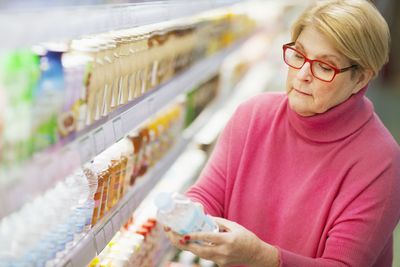OPRL survey shows almost a third unclear on EPR, but labelling can help producers prepare
Published:
Read Time: 2 mins
New research into awareness around extended producer responsibility (EPR) for packaging shows that 32 per cent of respondents have gaps in their understanding of EPR obligations.
Initial findings from the study, which was produced jointly by OPRL and Packaging News, with input from Defra, highlight the disparity in understanding, and the scale of work still needed if packaging producers are to meet their obligations when the legislation is fully implemented in 2024.
Margaret Bates, Executive Director at OPRL, reassured packaging producers that even those with knowledge gaps can implement changes that will help them to prepare. She said: “The survey shows that while almost three-quarters of respondents are aware of EPR, when it comes to specifics, knowledge gaps are common. For example, while 71 per cent* are mindful that they will need to label consumer packaging with recycling information under EPR, only 57 per cent* have confidence in how to apply this.
“We help many producers who face the daunting task of implementing change across thousands of product lines. But our experience shows that labelling is one of the areas where brands can give themselves a head start. Fifty-eight per cent of the survey’s respondents agreed that EPR will improve the UK’s recycling rates, and demonstrating the recyclability of packaging through correct labelling will help to bring consumers on board and support the nation’s shift to a more circular economy.”
Under EPR rules, all packaging must be labelled to show consumers whether it is collected and recycled, and whether there is an end market for it. The government has proposed a single label design based on the same Recycle Now Swoosh currently used by OPRL[AH1] . All packaging types (except for plastic films and flexibles) will be required to be labelled by 31 March 2026. Plastic films and flexibles must be labelled by 31 March 2027.
The aim of EPR for packaging is to incentivise more sustainable packaging design. With 59 per cent of those surveyed agreeing that EPR is a ‘real game-changer for the UK packaging industry’, and 56 per cent saying it will ‘radically alter the way packaging is designed’, the report gave encouraging signs that EPR will act as an effective driver.
The survey, which was published in January 2023, surveyed 219 Packaging News subscribers. The majority – 74 per cent – handle or supply packaging placed on the market. Food and beverage made up the largest market, closely followed by household goods and personal care products.
To see the full results; visit: https://oprl.org.uk/wp-content/uploads/2023/02/Packaging-News-Special-Report-OPRL-Survey.pdf
*Excluding those businesses for which EPR requirements do not apply.
Ends
Editors notes
• OPRL Ltd operates the UK-wide On-Pack Recycling Label scheme used by over 750 member companies and charities. It is the leading independent expert in packaging recyclability, providing recycling and refill labels – and advice – to 95 per cent of the UK groceries market.
• OPRL is an independent, not-for-profit company limited by guarantee, established to help retailers and brands engage their customers in recycling.
• The company’s guarantors span ACE UK, Alupro, British Glass, CPI, INCPEN, LARAC, MPMA and RECOUP.
• OPRL was launched in 2009, as a not-for-profit limited by guarantee as part of the British Retail Consortium (BRC). The move followed work between BRC, the Food and Drink Federation (FDF) and their leading members, and WRAP. The aim was to devise a labelling system that would engage consumers with recycling, as local authorities started to roll out basic services. Three of the founding directors are still on our board.

